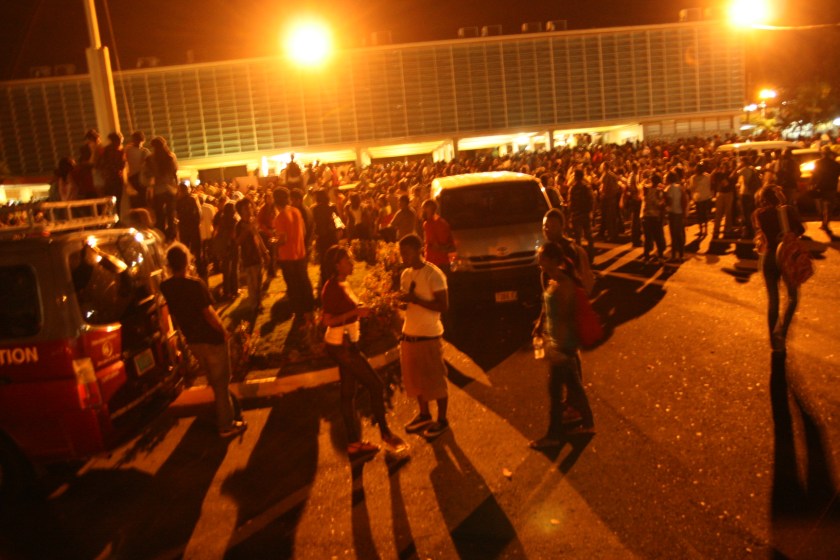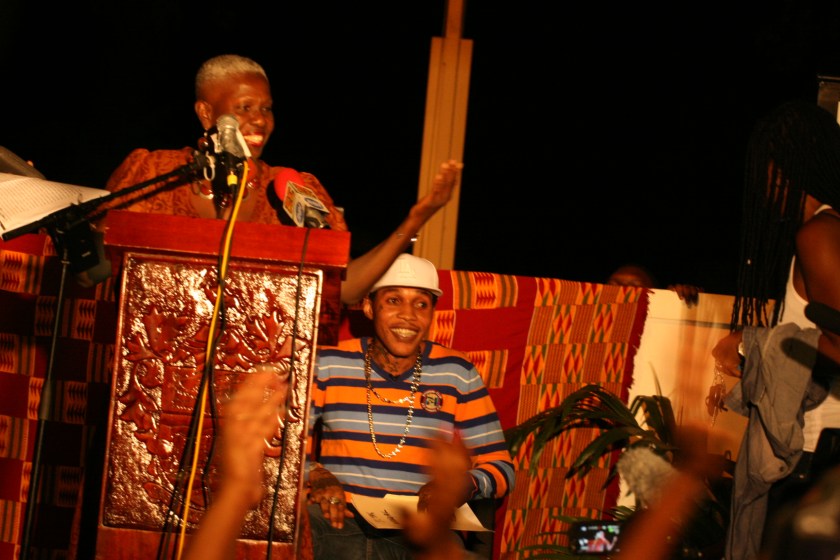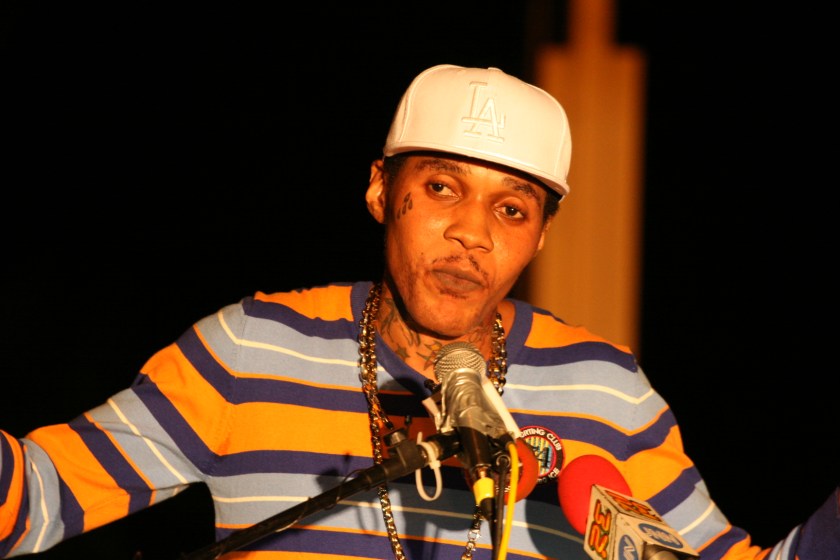So the great Vybz Kartel had his day at the University of the West Indies yesterday. Invited by Professor Carolyn Cooper to give a lecture titled ‘Pretty as a Colouring Book: My Life and My Art’, Kartel didn’t disappoint. A huge throng turned up hours ahead and milled about waiting for Addi the Teacha (and Bleacha) to arrive. Kartel came prepared to discuss and defend the bleaching of his skin, complete with a powerpoint presentation that detailed his love of tattoos–which don’t show up easily on dark skin.
My skin marks (no pun intended) many milestones in my life and represents another form of expression for me. Example: The teardrops on my face are in memory of my close friends who have died. My sons’ names on my arms represents their birth and celebrates their life. You have the Gaza thug on my knuckles which represents the community I am from, the nickname of the community, and on my chest I have Love is Pain.
This paradoxical phrase is symbolic in that it represents the relationships that I have been in where at times I have loved and lost and also it signifies that the things that you love are the only things that can hurt you. Example: The death of a loved one as opposed to the death of a total stranger…so, love is pain. For me, although tattoos are on the exterior they really tell a different story and they tell a lot about my interior and not just for show but they can serve as a history book of my life.
‘Until the color of a man’s skin is of no more significance than the colour of his eye’ Kartel said, flipping the script by recalling Haile Selassie’s famous words to the United Nations in 1963, quoted by Bob Marley in his song War. Kartel’s evocation of Selassie’s eloquent anti-racist statement to defend the lightening of his own skin may seem provocative but is also an interesting plea for a post-race framework that does not automatically align bleaching with low self-esteem or racial self-hatred. His presentation was punctuated by the mocking anh ha! anh ha! fake laugh that is his current trademark.
…I further maintain that bleaching today doesn’t mean the same as bleaching twenty-five years ago…we are a much prouder race who know that we can do what we want as far as style is concerned, we dictate styles and regard them as just that–styles. So as controversial as bleaching might be right now, I bask in my controversy with cake soap as my suntan.
Actually Kartel is on the cutting edge of research and thinking about this phenomenon when he argues for the changing role skin bleaching plays in this society today. Unfortunately many of his critics argue from a position that is uninformed by new thinking or ideas; many are stuck in their own identity crises and are slave to an idée fixe that is no longer pertinent. We think nothing of purging the kink out of our hair or the Jamaican accent from our speech–both are socially accepted; but if Black women are free to chemically terrorize their hair into limp straightness why can’t Vybz Kartel lighten his skin if he chooses to?? And why are we only mounting a hue and cry about skin bleaching downtown while deliberately averting our gaze from the many skin lightening creams such as Ambi and Nadinola used in uptown homes? The selective moral outrage is telling–this seems to be yet another case of moralizing the so-called lower classes.

As you can see from Storm’s photo of Kartel that was used on his 2006 album jmt, Kartel had no objection to the visual reference to the African continent in the portrait. There’s no reason to believe that Kartel has suddenly suffered an identity crisis, as per his reference to being from a proud race. If people are bleaching in Jamaica it’s because as Christopher A. D. Charles pointed out in ‘Skin Bleachers’ Representations of Skin Color in Jamaica’:
The popularity of the practice of skin bleaching suggests that it is socially acceptable. This means that light skin is socially desirable in Jamaica because there is a social demand for light skin in the country. Because light skin is a socially shared object that is socially desirable in Jamaica, this means that light skin has high social status.
Until Jamaican society chooses to alter the cultural conditions that place a premium on light skin, some Jamaicans will continue altering their bodies to meet the social demand for light skin and others will do so just coz ‘Black nah wear again’ or because like Kartel they want their tattoos to contrast with their skin instead of blending in with it.
In the meantime enjoy some photos from the landmark Kartel lecture at UWI. anh ha! anh ha!
Photos below by Varun Baker
















